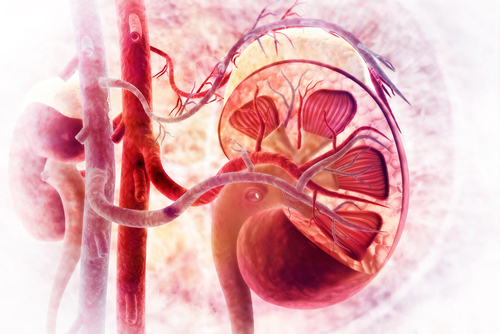Kidney Transplant is Safe and Effective to Treat Renal Failure in Children With AAV, Small Study Suggests
Written by |

Kidney transplantation is safe and effective for treating children with ANCA-associated vasculitis (AAV) who develop serious kidney problems as a result of their disease, a long-term study in Japan suggests.
The transplant successfully prevented the return of AAV-related kidney damage in seven children over a median of seven years, while two children developed a rejection reaction to the transplant.
The study, “Long‐term outcome of renal transplantation in childhood‐onset anti‐neutrophil cytoplasmic antibody–associated vasculitis,” was published in the journal Pediatric Transplantation.
About 7% to 41% of children with ANCA-associated vasculitis (AAV) develop kidney failure, also known as end-stage renal disease, which can result in them having to undergo kidney transplants.
To find out how frequently the disease returns in these children and their long-term prognosis, researchers in Japan conducted a retrospective study where they describe the long‐term outcomes of a group of seven children who underwent kidney transplants at the Tokyo Women’s Medical University between January 1999 and December 2017.
The children ranged in age from 8.7 to 16.3 years at the time of their transplants. The researchers investigated the clinical characteristics and outcomes of the patients, as well as the AAV recurrence rate, and complications after the transplant.
Among the seven children, three had microscopic polyangiitis, while four cases were classified as renal limited vasculitis.
Before the transplant, all patients developed kidney failure for which they received peritoneal dialysis (cleaning the waste and fluid from the blood using the lining of a person’s abdomen) for a median time of 26 months.
Over a median follow-up time of seven years after the transplant, no recurrences of AAV were observed in the children. Infection-related hospitalizations occurred in three patients but all of them recovered after receiving antiviral or antibacterial treatment.
Two patients experienced kidney rejection, with one losing his kidney 10.3 years after the transplant, after failing to comply with prescribed methylprednisolone, an immunosuppressant therapy.
The estimated glomerular filtration rate, which measures the function of the kidney, in the remaining patients at the last follow‐up was well-maintained at 73.0 mL/min/1.73 m2. No cancer or deaths occurred during the study period.
Overall, the study suggests that a kidney transplant for children with AAV and kidney failure “is a potentially safe and effective treatment choice,” the researchers wrote.





